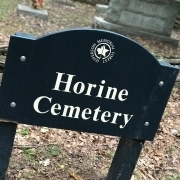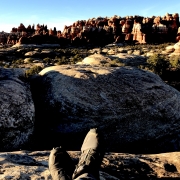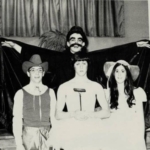Your Brain on Alcohol | Healthy Aging Series: S10 E14
I have read “Lonesome Dove,” by Larry McMurtry, at least five times. In the opening scene, Gus McCray saunters out to the well house to fetch his jug of Tennessee Whiskey. It’s been a long hot day in south Texas. The sun is setting, and he sits on the porch, takes a couple of long gulps from his jug, getting, as he described it, a little misty. That was his daily ritual.
I love that scene. I love the character that McMurtry created. He’s an aging man, enjoying his life and his daily drink in the evening. I confess that I like that evening, misty feeling that I get from a dinner cocktail, pint of beer, or a glass of wine.
Things changed about five or six years ago when I started wearing a Fitbit that tracks my sleep. I started noticing that my heart rate did not drop as much or as quickly when I had even one drink, regardless of the time of day. It really didn’t go up; it just took a good part of the night to drop down to the low 50s. Eating sugar before retiring also delayed my heart rate from dropping.
I’m going to spend some time later in this season on the topic of “Your Brain on Sleep,” so save your sleep-questions for later. Of course, the real question is this: Is this effect on my heart rate a problem? I read an article by a cardiologist (New York Times), and they suggested that it wasn’t a problem, but it kind of makes you wonder, as Squirrely Dan from Letterkenny suggested.
Alcohol is Poison
And then there was the Huberman Lab Podcast that I was listening to a couple of years ago where Dr. Andrew Huberman, a neurologist, called alcohol a poison. Yes, he said, if you drink chronically, you will experience neurodegeneration or loss of white and gray matter. Therefore, you should not drink alcohol at all. Alcohol is evil. There is no option other than complete abstinence. Amen.
Here’s a confounding question: Regardless of what you do, or don’t do, eat, or don’t eat, drink or don’t drink, you will lose white and gray matter as you age. The answer is yes. Dr. Huberman isn’t the only medical or mental health professional advising absence, and there are lots of studies, studies highlighting the deleterious effect of drinking alcohol, especially as we age.
But there are voices out there that advocate mild to moderate drinking, suggesting that it lowers the risk of everything from stroke to Alzheimer’s Dementia, and that drinking wine is associated with a longer life. Consider the Mediterranean Diet that is touted by many, many, many health professionals that allows for two glasses of red wine daily. And there are several longitudinal studies that suggest drinking alcohol, within reason, is good for you. I’ve read all of the studies or at least most of them. Here are my takeaways:
First, heavy, chronic drinking, is detrimental to your health and mental health. The National Institute of Health advises that if you drink daily, you can have one or two drinks daily. That’s 14 drinks per week. If you drink less than daily, you can have three drinks, with the caveat that you consume those drinks on a one-drink-per-hour-basis. Still, the 14 drinks per weeks is still in effect.
I don’t want to get lost in the details here, I just want to find common ground! Chronic, heavy drinking is not good for you. Can we all agree on that?
Second, if you are a light to moderate drinker, diet, exercise, and sleep, will have a greater impact on your life than whether or not you drink and by that I mean light to moderate drinking. This also applies to your brain health. Exercising your brain will affect your brain health more positively than the negative effects of alcohol. There are three variables to consider when drinking.
One, heavy drinkers are more likely to be smokers, which will likely increase mortality.
Two, wine drinkers are more likely to be more educated, more health conscious, and less obese, which means less diabetes, which means a decrease in risk of early mortality. I suspect that those that have been lifetime abstainers or former drinkers are more health conscious, which again skews the data toward decrease risk of mortality. Dr. Peter Attia was interviewed about his book on healthy aging, “Outlive: The Science and Art of Longevity,” and was asked if there was one thing that he would want people to take away from his book, what would it be? His answer: exercise.
Third, there are social benefits to light and moderate drinking. Alcohol isn’t just a social lubricant, but it is also a social adhesive for many aging people. Social isolation can contribute to a decrease in quality of life and maybe sharing a glass of wine with family and friends can serve as a buffer to that isolation.
My Break Up With Alcohol
I made the decision to break up with alcohol on February 27, 2024, six months ago. I based that decision, not on the health issues, whether it was poison or not, or on longevity. Well, maybe my health issues played a small role. So, why did I stop drinking?
First, a book that had a big impact on my use of alcohol was, “This Naked Mind,” by Annie Grace. Her book got me to think about my drinking and, in those very honest moments, I decided that I didn’t enjoy drinking. I enjoyed the taste and those initial moments following my first drink, but I did not, did not, enjoy the physical effects that followed 20 or 30 minutes following that first drink. Honestly, I felt like crap. So, I decided to stop drinking.
Second, I realized that I couldn’t do the things that I enjoyed doing if I had a drink in the evening. I couldn’t focus on reading and writing. I just wanted to go to bed. Reading and writing are important to me, so I decided to stop drinking.
Third, prior to my decision to stop drinking, I attempted to manage my use of alcohol. Ask anyone who knows me. All I ever talked about was managing my alcohol use. I would have a plan, and then the plan would go amuck. I would tell myself that I would only drink 3 or 4 times a week, and then drink every day.
Part of my frustration was my inability to control something in my life, and that something was alcohol.
So, I decided to stop drinking. Believe it or not, it has been easier to not drink then it was to manage or control my alcohol use.
Intentional drinking
Considering what I’ve just shared, how should you drink? Is alcohol poison?
When we label alcohol as a poison, we make no progress in helping people drink responsibly and intentionally.
If you’re going to drink intentionally…
First, make the decision to drink within the guidelines of the National Institute of Health: (Men) 2 drinks if you drink daily, 3 drinks if less than daily. (Women) 1 drink daily, 2 drinks if less than daily. (For men and women) 1 drink per hour.
Second, if you’re going to drink, exercise 150 minutes a week, eat lots of fruits and vegetables, get 7-8 hours of sleep, and socialize with family and friends.
Third, do I need to mention, if you’re going to drink, don’t smoke cigarettes.
I’m writing this while flying to Denver to visit family. I am wearing my Air Buds with noise reduction. I love them. I hear only the music from my iPhone, mostly. If you’re going to drink intentionally, you need to use some form of noise reduction and silence the voices that are out there pontificating on the evils of alcohol, or the miraculous benefits of alcohol, and simply live, and enjoy life, and be a little bit like my hero, Gus McCray, who had a healthy routine of getting a little misty as the sun set on Lonesome Dove.













